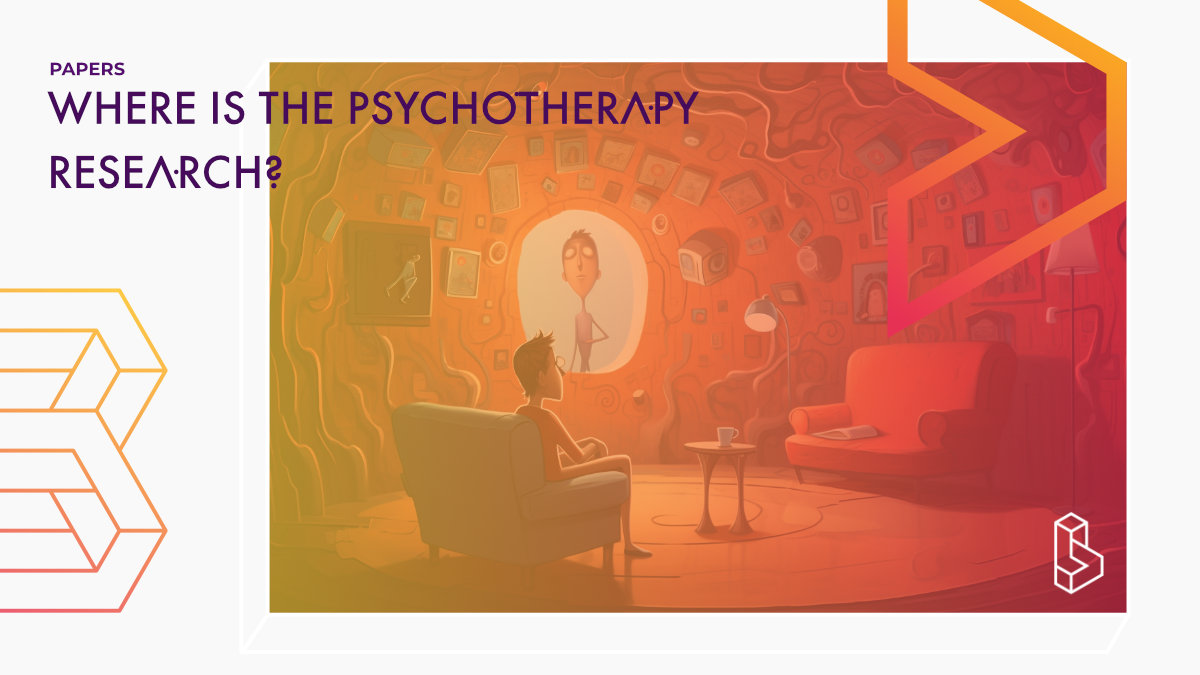This review (2024) scrutinizes the role of psychotherapy in psychedelic-assisted psychotherapy (PAP/PAT) for mental health conditions. It underscores a significant research gap in understanding the psychotherapeutic elements within PAT, despite its assumed importance for safety and efficacy. The paper calls for a transdisciplinary approach in future research to optimize PAT clinical outcomes and inform federal guidelines.
Abstract of Where is the psychotherapy research?
“Rationale: Psychedelic-assisted psychotherapy (PAP) has emerged as a potential treatment for a variety of mental health conditions, including substance use disorders and depression. Current models of PAP emphasize the importance of psychotherapeutic support before, during, and after ingestion of a psychedelic to maximize safety and clinical benefit. Despite this ubiquitous assumption, there has been surprisingly little empirical investigation of the “psychotherapy” in PAP, leaving critical questions about the necessary and sufficient components of PAP unanswered.
Objectives: As clinical trials for psychedelic compounds continue the transition from safety- and feasibility-testing to evaluating efficacy, the role of the accompanying psychotherapy must be better understood to enhance scientific understanding of the mechanisms underlying therapeutic change, optimize clinical outcomes, and inform cost-effectiveness.
Results: The present paper first reviews the current status of psychotherapy in the PAP literature, starting with recent debates regarding “psychotherapy” versus “psychological support” and then overviewing published clinical trial psychotherapy models and putative models informed by theory. We then delineate lessons that PAP researchers can leverage from traditional psychotherapy research regarding standardizing treatments (e.g., publish treatment manuals, establish eligibility criteria for providers), identifying mechanisms of change (e.g., measure established mechanisms in psychotherapy), and optimizing clinical trial designs (e.g., consider dismantling studies, comparative efficacy trials, and cross-lagged panel designs). Throughout this review, the need for increased research into the psychotherapeutic components of treatment in PAP is underscored.
Conclusions: PAP is a distinct, integrative, and transdisciplinary intervention. Future research designs should consider transdisciplinary research methodologies to identify best practices and inform federal guidelines for PAP administration.”
Authors: Jacob S. Aday, David Horton, Gisele Fernandes-Osterhold, Aoife O’Donovan, Ellen Bradley, Raymond C. Rosen & Joshua D. Woolley
Summary of Where is the psychotherapy research?
There is no universally accepted theoretical basis for psychotherapy, so each psychotherapist develops techniques of managing patients under the influence of LSD. High-dose psychedelics paired with psychotherapeutic support before, during, and after dosing sessions are increasingly being studied as a potential therapeutic intervention for multiple disorders.
This combination of pharmacological and psychological treatments represents a potential paradigm shift for the field. The lack of systematic study of the psychotherapy associated with psychedelics has been a fundamental challenge for the field. Although trial-and-error has been incredibly valuable for the field, systematic study has been lacking.
Find this paper
Psychedelic-assisted psychotherapy: Where is the psychotherapy research?
https://doi.org/10.31234/osf.io/s3yjd
Open Access | Google Scholar | Backup | 🕊
Cite this paper (APA)
Aday, J., Horton, D., Fernandes-Osterhold, G., O’Donovan, A., Bradley, E., Rosen, R., & Woolley, J. (2023, November 6). Psychedelic-assisted psychotherapy: Where is the psychotherapy research?. https://doi.org/10.31234/osf.io/s3yjd

